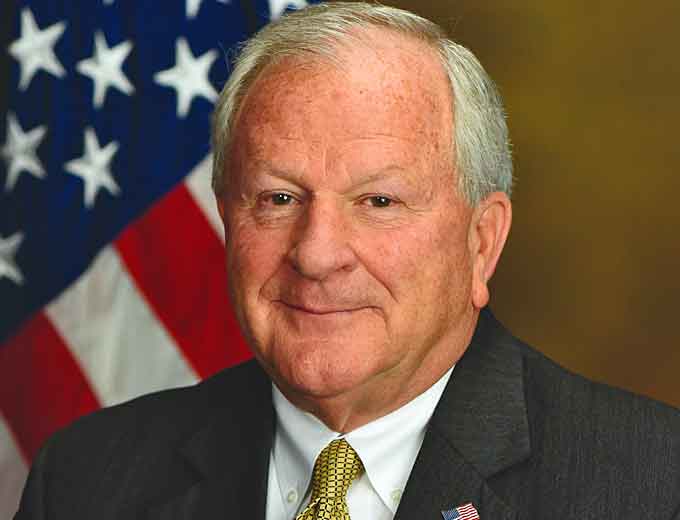
“The mental well-being of the men and women who serve and protect our communities is every bit as important as their physical health and safety.”
“Our nation’s law enforcement officers—and their civilian colleagues—hear and see things every day that most of us are fortunate we never have to imagine.

“The current national climate of distrust in law enforcement and lack of sympathy or fairness for them before the facts are known makes an already difficult and dangerous job mentally and emotionally stressful as well.”
“The continuous attacks without knowing the facts could be an underlying variable to one of the most compelling challenges in law enforcement—hiring and retention—and in general could contribute to low morale in many agencies.” – Courtesy of Phil Keith, Office of Community Oriented Policing Services (Cops)
The Department of Justice has released two complementary reports which focus on the mental health and safety of the nation’s 800,000 federal, state, local and tribal police officers.
The new reports, titled: Law Enforcement Mental Health and Wellness Act: Report to Congress and Law Enforcement Mental Health and Wellness Programs: Eleven Case Studies, were published by the Office of Community Oriented Policing Services (COPS Office) as required by the Law Enforcement Mental Health and Wellness Act (LEMHWA) of 2017.
(Ed Pila became a police officer in the Detroit area, where he focused on the domestic violence unit. In his work, Ed says, his heart was endeared to the many women and children that became victims of domestic violence. “Yet, I was not aware of the ramifications that would come from witnessing a career length of traumatic incidents. This is known in the psych world as ‘secondary trauma.’” Courtesy of OC87 RD and YouTube. Posted on Mar 28, 2019.)
Law enforcement agencies need and deserve support in their ongoing efforts to protect the mental health and well-being of their employees, and these actions show that LEMHWA’s purpose and intended effects are uncontroversial among policymakers.
Congress took the important step in improving the delivery of and access to mental health and wellness services that will help our nation’s more than 800,000 federal, state, local, and tribal law enforcement officers.
“Serving as a law enforcement officer requires courage, strength, and dedication,” Attorney General William P. Barr said.
“The demands of this work, day in and day out, can take a toll on the health and well-being of our officers, but the Department of Justice is committed to doing our part to help.”
“I want to thank the men and women of our COPS office for their hard work to support our officers every day, and specifically for these thoughtful and insightful reports, which detail both the challenges facing our officers and some specific ways we can give them the support that they deserve.”
(See the third of a three-part series with first responders entitled “Beneath the Vest: Conversations about Mental Health.” Courtesy of OC87 RD and YouTube. Posted on Mar 25, 2018.)
“A damaging national narrative has emerged in which law enforcement officers – whether federal, state, local, or tribal – are seen not as protectors of communities but as oppressors,” explains COPS Office Director Phil Keith.
“In this environment, where an inherently stressful job is made more so by a constant undercurrent of distrust and negative public opinion, the risks to officer wellness are exacerbated.”
“This report is an important measure and reflection in our ongoing commitment to protect those who protect us. “
Under the Law Enforcement Mental Health and Wellness Act, the COPS Office was required to submit reports to Congress that addressed:
- Recommendations to Congress for:
- Effectiveness of crisis lines for law enforcement officers
- Efficacy of annual mental health checks for law enforcement officers
- Expansion of peer mentoring programs, and
- Ensuring privacy considerations for these types of programs
- Mental health practices and services in the U.S. Departments of Defense (DoD) and Veterans Affairs (VA) that could be adopted by federal, state, local, or tribal law enforcement agencies, and
- Case studies of programs designed primarily to address officer psychological health and well-being
(See the second of a three-part series with first responders entitled “Beneath the Vest: Conversations about Mental Health.” Courtesy of OC87 RD and YouTube. Posted on Feb 22, 2018.)
The first report, Law Enforcement Mental Health and Wellness Act: Report to Congress, includes 22 recommendations ranging from supporting programs to embed mental health professionals in law enforcement agencies, to supporting the development of model policies and implementation guidance for law enforcement agencies to make substantial efforts to reduce suicide.
The case studies report, Law Enforcement Mental Health and Wellness Programs: Eleven Case Studies, is designed to provide an overview of multiple successful and promising law enforcement mental health and wellness strategies with the joint aims of informing Congress, state and local government officials, and the law enforcement field.
The report includes 11 case studies from a diverse group of sites across the United States on Law Enforcement Mental Health and Wellness Programs as follows:
- Bend Police Department
- Charlotte-Mecklenburg Police Department
- Cop2Cop
- Dallas Police Department
- Indianapolis Metropolitan Police Department
- Las Vegas Metropolitan Police Department
- Los Angeles County Sheriff’s Department
- Milwaukee Police Department
- Metropolitan Nashville Police Department
- San Antonio Police Department
- Tucson Police Department
(See thee first of a three-part series with first responders entitled “Beneath the Vest: Conversations about Mental Health.” Courtesy of OC87 RD and YouTube. Posted on Jan 24, 2018.)
The Department of Justice is pleased to respond to the LEMHWA as officer safety, health, and wellness is a longstanding priority of the agency.
The newly released reports address some of the most pressing issues currently facing our law enforcement community.
The COPS Office has a near 25-year history of supporting the efforts of state, local and tribal law enforcement, including the management of the National Blue Alert Network.
 The agency awards grants to hire community policing officers, develop and test innovative policing strategies, and provide training and technical assistance to community members, local government leaders, and all levels of law enforcement.
The agency awards grants to hire community policing officers, develop and test innovative policing strategies, and provide training and technical assistance to community members, local government leaders, and all levels of law enforcement.
Since 1994, the COPS Office has invested more than $14 billion to help advance community policing.
Learn More…
Diary of a Suicidal Cop: ‘Inside it’s a War’ (Important: Please Read & Share)
















